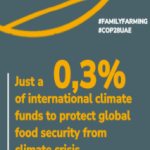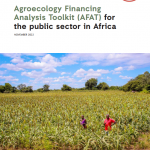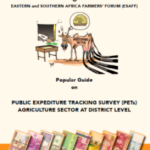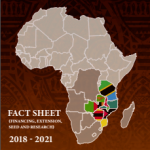SEEDS: Why Local Seeds are Best for Us!
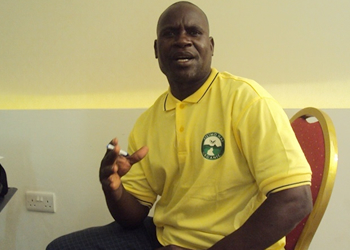
21/10/2013
Small scale farmers are worried of disappearance of local seeds which in recent years, are gradually being replaced by conventional hybrid. Our reporter GERALD KITABU caught up with local seed producer from Mbozi district, Mbeya region, Amasha Mwashiuya during the Eastern and Southern Africa Small Scale Farmers’ Forum (ESAFF) workshop held in Dar es Salaam and here he explains the importance, achievements and challenges faced in promoting the seeds…
ANSWER: We decided to venture into local seeds in 2006 after suffering a big blow in Ibembwa village in which I live. Some companies supplied fake seeds to farmers which did not geminate and others did not grow well. Many farmers who had toiled in their farmers for a long time, braving sun and rain ended up in hunger. So, it was from this fact that we farmers who were aware of the problem, organized ourselves and convened a meeting to form a group called ZYATWAGA. This group started producing our own local seeds that could rescue the situation. We managed. Initially, the local seeds production group was formed with few members in 2007, as it had only 12 members, out of whom five were men and seven women. Today we are 40 in number out of whom 15 are men and 25 are women.
Q: Why are local seeds significant to farmers like you?
A: Unlike the recent introduced conventional hybrid, maize local seeds such as Ibandawe have multiple benefits. They are drought tolerant, disease resistant, palatability, good threshing quality and big cobs. Since we started growing these seeds, they have remained by far the major component of seed systems in our village. Usually smallholder farmers save a portion of their current production for the next year’s planting season. Experience have shown that, based on their evolutions, local varieties without additional technology like fertilizers and irrigation have surpassed modern varieties from the formal sector
Q: What achievements have you registered so far?
A: We have recorded many benefits ranging from economy to knowledge. For example, since we started producing and growing these local seeds, we have never suffered hunger. We just hear from other parts of the country. The seed production have increased our family incomes and we are able to take our children to school and pay for their school fees, and we are able to provide loans among group members.
Q: How many local maize varieties do you produce?
A: As I said earlier, we produce two varieties namely Ibandawe and Nchancha but at the moment we are producing more Ibandawe than Nchancha because for only one hectare, we produce up to 28 bags of maize. The seeds are easily accessible and the price is affordable to farmers in the village. For example, Ibandawe is sold at Tshs 1,000/= per Kilogramme as compared to Tshs 4,000/= per Kilogram of the so called improved or certified seeds.
The seeds are manageable by the farmers as they mostly use indigenous knowledge in seed preservation like the use of local methods known as Isogoyo, Tephrosia, Utupa and ashes.
Q: What are the challenges faced?
A: There are many challenges. First, despite our efforts to protect our local varieties from disappearing from Tanzania’s map, our local seeds are not given propriety by different stakeholders and the government in particular. For example, we are not entitled to government subsidy like other conventional hybrid. The government is preaching on conventional hybrid which has several effects to farmers in terms of health and some times don’t reach the farmers in remote areas on time. If our local seeds are being opposed by main stakeholders, how can we expand our production and secure more reliable markets? Further more, some of our customers have negative perception and they don’t have confidence with our seeds. Some say our seeds lack good packaging. Another problem is that our group members do not settle their loan on time. These and many others have limited our production capacity.
Q: Who supports your project?
A: We have some supporters in this course but the main ones are the Eastern and Southern Africa small scale farmers’ forum (ESAFF) and ADP Mbozi. But we urgently need government support because we have confidence with our government in helping farmers at grassroots level.
Q: So, what are your future plans?
A: We are planning to expand our production to 15 hectares and issue soft loans of up to 3million shillings to our members for production.
Q: What is your call?
A: Charity begins at home. I call upon the general public to respect and value local seeds because, apart from healthy and environmental benefits, sometimes local seeds are used as medicine. We urge the Ministry of Agriculture, Food Security and Cooperatives to promote the local seed production by providing us subsidy and soft loans in order to increase our production and contribute positively to the nation economy.

















